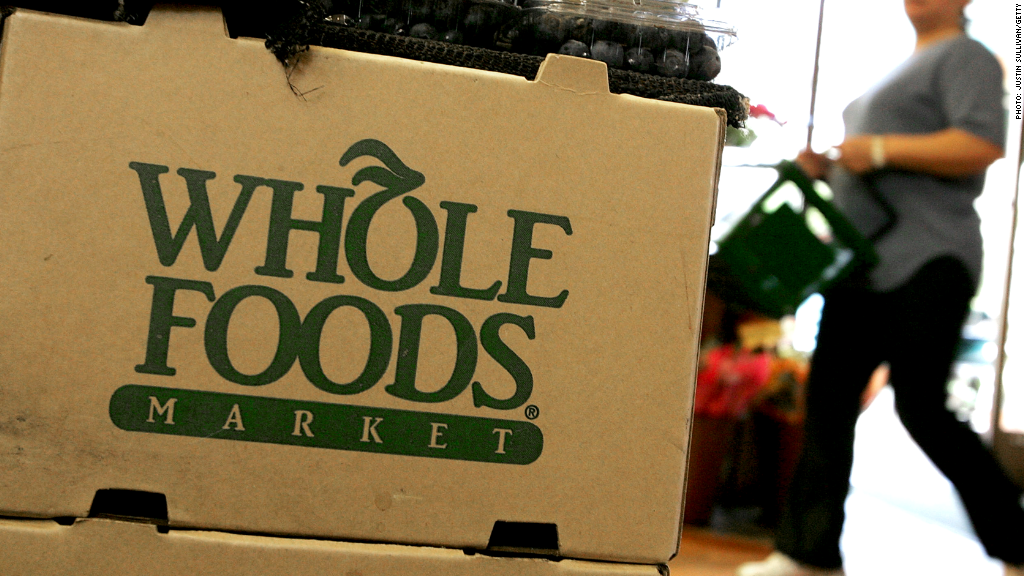
Chicago's Englewood neighborhood, where nearly half of households sit below the poverty line, seems like an unlikely market for an upscale grocer.
Whole Foods is betting on the South Side neighborhood with an 18,000 square foot store slated to open in 2016. The company and city hope the new store, part of plans for a larger shopping complex, will breathe new economic life into the area and provide healthy food options.
But can the store with a reputation for pricey lines of fresh and organic foods build a market in poorer neighborhoods?
Yes, the company says, pointing to the Detroit location they opened in June. "The store is exceeding our wildest expectations," CEO Walter Robb told Bloomberg last month.
Related: Can Whole Foods hold onto its green cred?
In Englewood, the chain plans to keep costs down by starting with a small footprint, hiring a small staff and finding ways to partner with the community. Whole Foods spokeswoman Kate Lowery pointed to the community college culinary program across the street.
"Imagine," she said, "if we have our prepared foods that we would normally cook in store -- we could go across the street and develop an apprenticeship program, they could prepare some of the products under our supervision and to our quality standards."
Such innovations could keep the store's overhead down, and Lowery said management is thinking outside the box and building stores that won't fit any "cookie cutter format."
She couldn't say specifically if products would be less expensive at the Englewood store than other locations.
Related: Grocery is low-margin, except at Whole Foods
But there's no guarantee Whole Foods' 19th store in Chicago -- another planned for the Hyde Park neighborhood will make 20 -- necessarily follows their success in Detroit.
For starters, it's a high-end grocery in a low-income area. Then there are competitors, including a small ALDI market (a corporate sister of Trader Joe's) down the street.
Despite that store, Englewood is still considered by USDA standards to be a "food desert." Studies have linked these grocery-bare areas, where food options may be limited to only fast food and convenience stores, to increased rates of obesity and other health issues.
City-wide, the number of food desert residents number about 400,000 -- enough to fill the Chicago White Sox's stadium 10 times, said Mari Gallagher, a consultant and researcher who has studied food deserts, including extensive analysis of Chicago. The city has experimented with food stands in urban areas; seen the arrival of Fresh Move, a city bus refitted into a mobile farmer's market; and involved college students at Loyola University in environmentally sustainable food solutions. A variety of efforts have "reduced the number of low income people in food deserts by 20% in two years," said Tom Alexander, a spokesman for Mayor Emanuel.
Related: Culture moving our way, Whole Foods CEO says
His office projects the Englewood Whole Foods will bring down the number by another 3%.
Gallagher said it will take more than simply building a grocery store to solve larger cultural and health issues bred in a food desert.
"You can't just plop down a grocery store and expect everyone overnight to make healthy food choices," she said.
Whole Foods launched community outreach efforts in Detroit, and have plans for similar programs in Chicago. In Englewood, they'll "host free educational classes on healthy eating and nutrition, shopping on a budget and cooking demonstrations," said Michael Bashaw, Whole Food's regional president.
The Englewood store is also one step on an ambitious plan to triple the chain's size. Whole Foods currently has 360 stores and another 100 in the pipeline, but leadership envisions a nationwide network of over 1,000 stores in the future.
